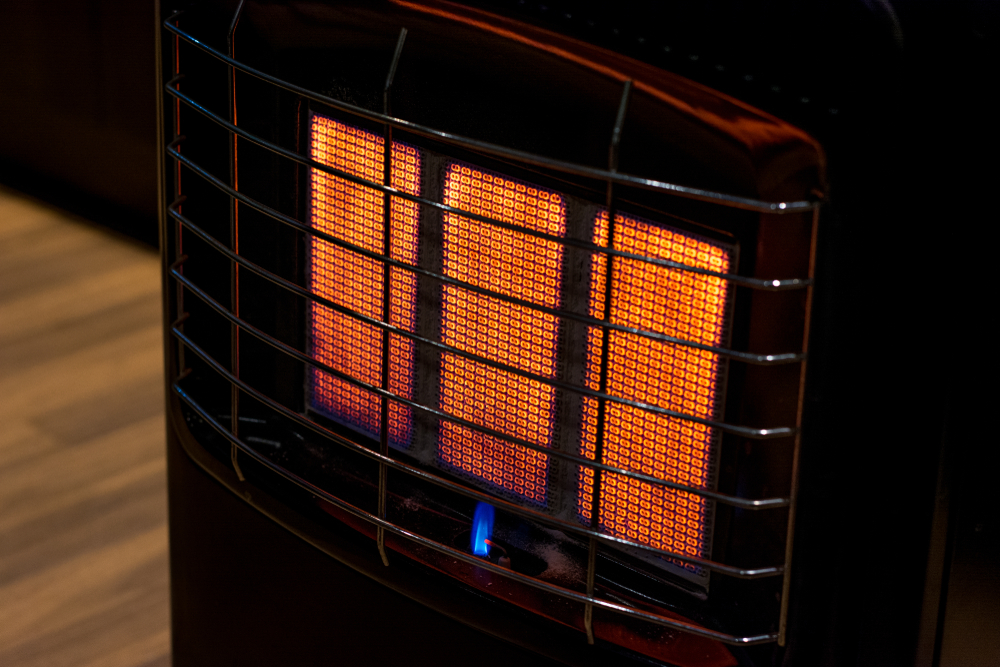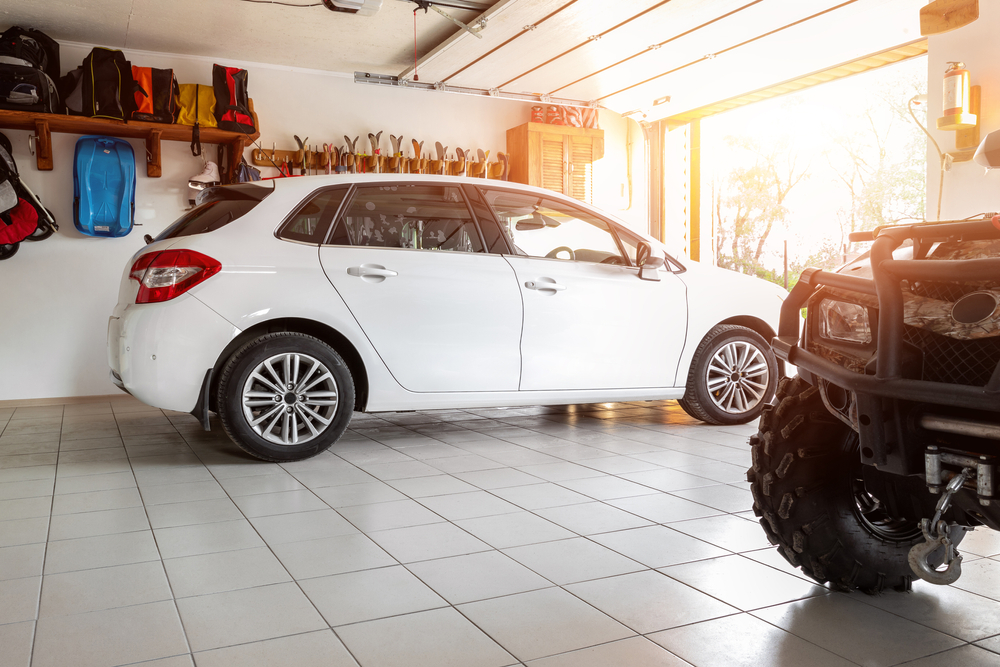What is the Most Energy Efficient Garage Heater?
The garage might be attached to the home, but it isn’t ventilated for heating and cooling. This means that the air conditioner won’t cool the garage during hot summers, and the furnace won’t warm it up during the brunt of a cold winter.
Homeowners with a workbench or station in their garage might not find it to be the most comfortable environment. For this reason, they might use a heater to warm up the space when it’s cold. What is the most energy-efficient garage heater? Homeowners might need to look for portable heaters to use in the garage.

Are Portable Heaters Energy Efficient?
Portable heaters are not eligible for the ENERGY STAR label. In addition the ENERGY STAR explains that the Environmental Protection Agency doesn’t plan on qualifying them for the label.
Typically, homeowners could look for this label to understand when an appliance was the most energy efficient option. With portable heaters for the garage, understanding energy efficiency might be a bit more complicated.
Those who need to add warmth when working in the garage can choose from different types of heaters. Some use butane, others plug into an outlet. However, the site Hygiene Supplies Direct recommends a panel heater with energy-saving features—the more features, the better.
Homeowners might also use the heater that is easiest to use. Some heaters use oil to heat the space. This could be an efficient means of heating the garage, but using oil as a heating source might not be every homeowner’s preference.
What is the Best Garage Heater?
Homeowners looking for the best option might turn to Bob Vila’s sage advice. The site named the Comfort Zone Electric Ceiling Mounted Heater as the ‘Best Overall’ for the garage.
The Lasko 755320 Ceramic Space Heater was named ‘Best for the Buck.’ Buyers on a budget might opt for this model.

Saving Money and Energy While Heating the Garage
If homeowners don’t need to work in the garage often, choosing to only use a portable heater on occasion might not increase energy costs for the home by much. However, if homeowners are constantly in the garage and using a portable heater, it could start firing up the utility costs.
Since these heaters aren’t rated for energy efficiency, homeowners might need to research their options to find the best heat source. Again, portable heaters come in different options; some use electric, others use oil and some might use butane to heat a space.
The cost of the heat source also could influence the type of heater homeowners choose. If electric is cheaper, this could be the best option. In addition, homeowners might consider the size of their garage when choosing their heater. Not all heaters could be adequate for warming larger spaces.
Another easy way that could help homeowners save is by bundling up in the garage. Depending on the project, wearing thick gloves might not be an option. Homeowners could choose to layer their clothing and rely less on a personal heater.
Energy Efficient Upgrades for the Garage
In many homes, the garage is not insulated very efficiently. Since it’s not connected to the home’s heating and cooling, most homeowners probably don’t think about it as a source of energy waste.
However, if homeowners use their garage for a workshop and plan on using a portable heater, they probably don’t want to waste money on heat that escapes or cold drafts. For this reason, homeowners might choose to add more insulation to their garage or upgrade their garage doors. These upgrades can help keep heat in and cold weather out of the garage, thus putting less pressure on the heater.
Newair also recommends that homeowners could insulate their windows (or even upgrade their windows). Again, making this area more energy efficient and insulated could help keep the heater from working harder, wasting energy and adding to utility costs.
The floor also is another area in the garage that could receive more protection, per Newair. Homeowners can cover the concrete with better and more insulated material to keep the garage from feeling so cold.
Can Homeowners Add Central Heat to their Garage?
Homeowners might wonder if it would just be easier to heat and cool their garage by connecting the space to their HVAC system. There are pros and cons of adding central heat or air to the garage, and, in some cases, it could become expensive for homeowners to heat and cool this space.
However, if the climate causes the garage to get too warm and the homeowner stores paint or other supplies that cannot sustain the heat, homeowners might decide to make a temperature-controllable upgrade to their garage.
While homeowners cannot easily look for a label that denotes the most energy efficient garage heaters, there are many options for adding warmth to this space. Choose the best heater for the budget to make the garage a comfortable working space on a cold winter day.


